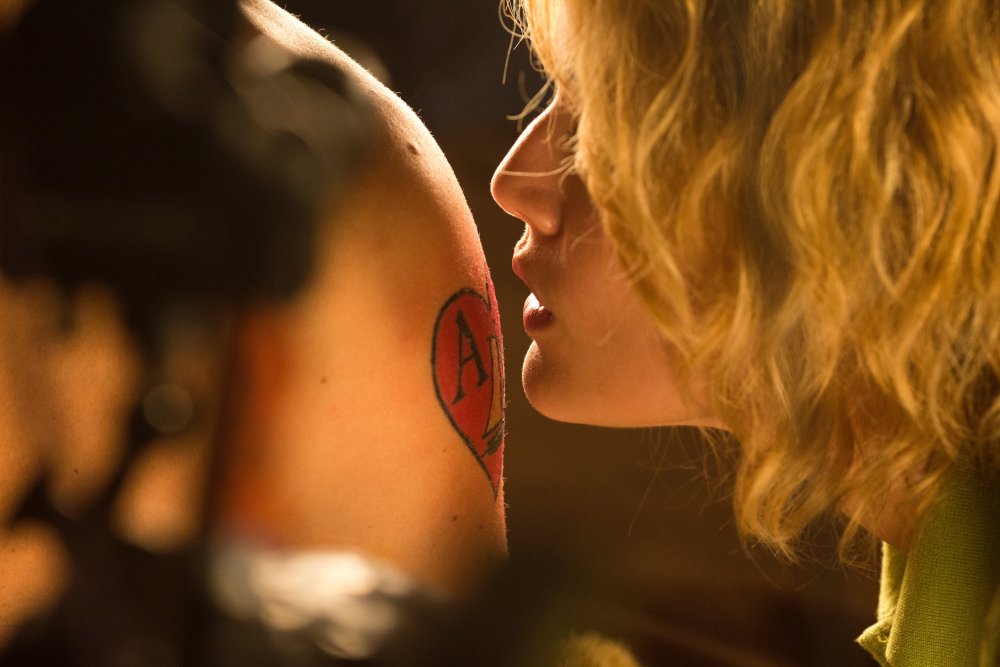Brand Almodóvar has been diluted in recent years. 2011’s The Skin I Live In was a stylish but hollow exercise in thematic graverobbing; 2013’s I’m So Excited! a limp farce that retreated even further into the director’s back catalogue, and suggested what he’d done well to leave behind. Julieta, thankfully, is something else entirely: opening with a close-up on a red dress’s suggestively labial folds, this is Almodóvar’s return to adult melodrama, retailored from Alice Munro’s short prose, and set lovingly around the shoulders of a harassed Madrilena on the verge of a non-comic nervous breakdown.
When we first meet Julieta (Emma Suarez), she’s weighing up a potential move to Portugal with a gentleman admirer. A chance meeting with an old friend, however, alerts her to the fact her estranged daughter Antia may be back in circulation – a state of affairs Julieta takes as an opportunity for a fresh start, abandoning her suitor and instead moving into a new apartment with barely more furnishing than a shredded photograph of mother and child in happier times. Those pieces can be picked up and reassembled; real life, inevitably, proves far less easy.
With tremendous economy, Almodóvar establishes his heroine as subject to distinct impulses – independence, coupled bliss, the consolations of family – and caught somewhere between the sea and dry land, her past, present and future. (Is there some correlation between her daughter’s name and “antes”, the Spanish word for before?) It’s amidst this entanglement that Julieta sits down to write her child a letter, cueing an extended flashback to that moment in the 1980s when, like Almodóvar, her younger self (Adriana Ugarte) was first setting out into the world.
This solution to a narrative conundrum is elegantly simple, and sustains this director’s best written film in some time, one that preserves Munro’s deeply feminist concerns around being a mother and a daughter, addends resonant notes on The Odyssey and the history of women in cinema, and builds a considerable emotional impact within a mere 99 minutes.
Julieta’s letter to an unknown young woman allows Almodóvar a direct line of inquiry into the fairer sex’s deepest mysteries – why they feel what they feel and do what they do, and what they might feel and do after losing a loved one. The bonus with Almodóvar, of course, is that this investigation is set out in such rich textures. The life-giving folds of that dress come to rhyme with the restorative folds of Julieta’s missive, just as Alberto Iglesias’s jazzily noirish score sets us in mind of such prior investigations as Laura, Mildred Pierce and Rebecca.
Anybody lamenting the deterioration of craft in recent American studio pictures should find great solace here: every location and design choice – from the older Julieta’s blank apartment to the cassettes in the teenage Antia’s bedroom – is a clue, and has clearly been dwelled over as such. Yet there’s something else here that’s been lacking from the majority of this year’s releases: credible human beings, displaying recognisable human feelings even as they trail unshakeable, still-vivid history behind them.
The Almodóvar effect has traditionally been illustrated with reference to Penelope Cruz’s progression from pin-up to leading lady. He works a similar transformation here upon Ugarte, whose hairstyle alone might be studied to describe Julieta’s shift from punky free spirit to achingly proud young mum. If Suarez initially comes across as a somewhat fathomless presence, limited to close-ups of purgative scribbling (for this is, lest we forget, a writer’s story), she’s very good once she reappears inside the flashback – after a glorious transition – and has to face the fact her daughter has drifted away from her.
Few directors have gone to such lengths to ensure their characters’ baggage is so stylish, but it’s the emotion deep within Julieta – the meaning of the words she writes in that letter – which makes the film a notable return to form: at the end of a cold and alienating summer of moviegoing, it greets us with the warmest and most welcoming of embraces. You’d have every right to once more start thinking of Almodóvar as a master – that most masculine of laurels – were he not in such obvious, regular and rewarding correspondence with his feminine side.
(MovieMail, August 2016)
Julieta screens on BBC2 tonight at 12midnight.

No comments:
Post a Comment